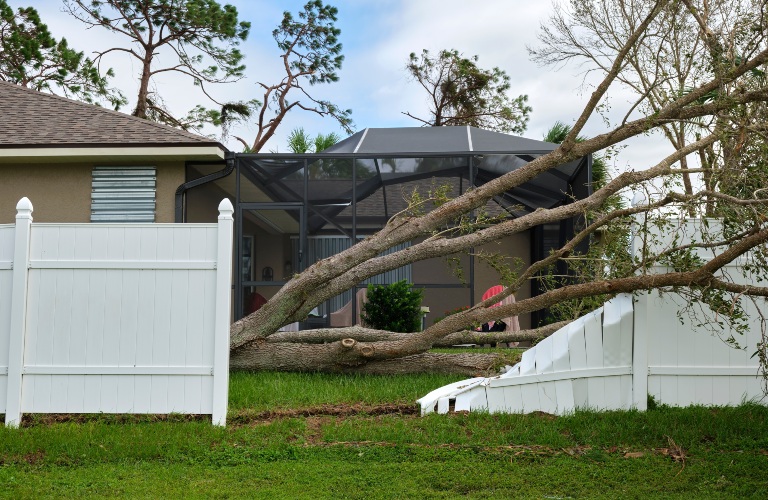Do Insurance Companies Pay for Hurricane Damage in Florida?

As a homeowner, you expect your insurance provider to honor the claims you make for damage that’s covered under the terms of your policy. These terms cover a wide variety of types of damage to hopefully provide you with comprehensive protection. However, if you live in Florida, it’s normal to wonder if hurricane damage is on the list, especially since this type of storm damage isn’t always spelled out in the coverage details.
While your Florida hurricane insurance claim attorney can help you navigate the claims process, it’s still helpful to understand what types of hurricane damage insurance companies will pay for.
What Insurance Companies Will Pay For
Though every homeowner’s insurance policy is different, most insurance companies will cover similar types of damage resulting from hurricanes. This includes the following.
Wind Damage
Hurricane force winds can do serious damage to your home and your property. Most insurance companies will cover wind damage such as:
- Broken shingles
- Missing shingles
- Broken windows
- Damaged siding
- Structural damage
As with any type of insurance claim, be sure to review the terms of your policy before filing a claim. This will help you understand what types of damage are covered.
Water Damage From Rain
Wind damage can easily create holes in your roof or walls. This increases your risk of leaks that can result in costly damage to your home. Most insurance policies will cover water damage resulting from rain seeping into your home during the storm. Most policies provide protection to the structure of your home as well as appliances and personal belongings.
Hail Damage From Tornadoes
Tornadoes are incredibly common during hurricanes, and they can do serious damage to your home and property. Most homeowners’ insurance policies include tornado damage in their coverage, meaning any damage your home suffers from hurricane-spawned tornadoes should be covered up to the limits of your policy.
Property Damage to External Structures
Though homeowners’ insurance is designed to protect your home, it may also extend coverage to external structures like storage sheds, carports, fences, and other similar features. You’ll want to read the terms of your policy before you file a claim.
Vandalism and Theft From Looting After the Storm

Unfortunately, looters and vandals can and do break into unoccupied homes after storms. Their actions can result in significant damage and loss of property. Luckily, most homeowners’ insurance policies will cover damage resulting from vandalism and looters. However, the exact coverage details will vary. Speak with your insurance agent to learn more about your policy’s details.
Insurance Companies May Not Pay for Flood Damage
By now, you’ve probably noticed that flood damage isn’t mentioned above. That’s because most standard homeowners’ insurance policies don’t cover flood damage, even from floods resulting from the hurricane. This means water damage due to storm surge or flash flooding won’t be covered, and you may have to pay for repairs out of pocket.
You Should Invest in a Flood Insurance Policy
To ensure that your home is fully protected from the common types of damage caused by hurricanes, you’ll want to purchase a dedicated flood insurance policy. This way, you’ll be covered and can get the money you need to make repairs after the storm without having to drain your savings.
Shop around for policies that fit your budget. If your insurance provider offers flood insurance, you can choose to use them for this policy. But if they don’t, you may need to work with another insurance provider.
Let Parrish Law Help With Your Insurance Claim
If your home was damaged by a hurricane like Hurricane Milton, the sooner you file your claim, the better. But you don’t have to go it alone. Let an experienced Florida hurricane claims attorney help from the very beginning. At Parrish Law, we’ll help you navigate the insurance claims process and increase your chances of getting a fair settlement. Contact us today to schedule a consultation.